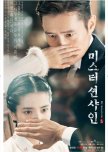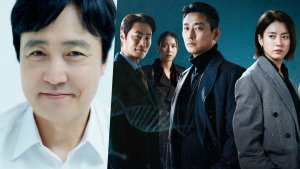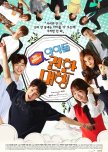 Lee Jong Suk in positive discussions to star in his first ever OTT K-drama!
Lee Jong Suk in positive discussions to star in his first ever OTT K-drama! Hee Tae, a top student at Seoul National University College of Medicine, becomes a local hero in Gwangju. His best friend Kyung Soo, a pro-democracy activist, persuades him to open an illegal clinic for students in hiding from the government. After a factory worker is injured during a protest, Hee Tae agrees to a meeting with a potential marriage partner arranged by his father, in exchange for help transporting himself and the worker. At the meeting, Hee Tae meets Myung Hee, a nurse struggling to afford her studies abroad. Despite their different backgrounds, they fall in love. In May 1980, amidst the Gwangju Uprising, their fates intertwine. (Source: MyDramaList) ~~ Based on real events of the Gwangju Uprising that happened in the city of Gwangju, South Korea, from May 18 to May 27, 1980. Edit Translation
- English
- 한국어
- 日本語
- Arabic
- Native Title: 오월의 청춘
- Also Known As: Youth in May , May Youth , Owolui Chungchoon , Owolui Cheongchun , Owoleui Cheongchun , Oworui cheongchun
- Director: Song Min Yeop, Lee Dae Kyung
- Screenwriter: Lee Kang
- Genres: Romance, Youth, Drama, Melodrama
Where to Watch Youth of May
Cast & Credits
- Lee Do Hyun Main Role
- Go Min Si Main Role
- Lee Sang Yi Main Role
- Geum Sae Rok Main Role
- Oh Man SukHwang Ki Nam [Hee Tae's father]Support Role
- Uhm Hyo SubLee Chang Geun [Lee siblings' father]Support Role
Reviews

Poetry in motion
Youth of May is definitely one of the biggest gems of 2021. It's a sweet old-school romance in the backdrop of harsh Gwangju Uprising. If you're aware of the political and social backdrop, you will probably enjoy it even more. But even without it, Youth of May is a soothing love story. It reminds you what it's like to be innocently in love. It's old-fashioned and sincere and gives you a satisfying sense of nostalgia, even if you weren't alive during that time.Lee Do Hyun has proved his versatility as an actor this year. While 18 Again is the crowd-pleaser (and for good reason), I don't know why but none of his characters can steal your heart like Hee Tae. It might be bold of me to say this but Lee Do Hyun outshined everyone on this show.
But that doesn't take away from the fact that this was one of the best cast ensembles we have had in a while. An out and out pool of talent. I have laughed and cried and ached and sympathized with all of their stories and I am going to carry them in my heart for a long time (I guess that's what happens with heavy dramas).
The couple's chemistry was amazing. The sfl nailed it. I really liked her character. The sml also held his own and had some awesome moments, The brothers were AWESOME! The kids stole the show. We had an evil father and an amazing father, both of the actors nailed it. The mums were great too. The friends. The soldiers. The friend-soldiers. It was the perfect cast.
I would say, in conclusion, that even if you're wary of the possible sad ending, go for it because this drama is worth it.

When fiction meets reality...
As a sociologist and someone from a country that went through two dictatorships, Youth of May, a drama that addresses one of the most tragic moments in South Korean history (which took place during a dictatorial period, it is important to emphasize) caught my attention.I usually believe that art in general, including dramas, has a social function, which is to remember, even what we most want to forget, because even what causes us sadness is part of the stories we experience and it is of course, the stories that make up a country and its people.
And in Youth of May it is possible to identify this effort to revive the collective memory, mixing fictional aspects and others that go back to the often cruel reality. For, against the background of the Gwangju massacre, Youth of May portrays the multiple deaths that can be experienced in traumatic events.
"Death" does not always refer to the body, but to dreams that are not lived, hopes that are dashed and reputations destroyed. Making you question what it means to live? Is a person who has given up on their dreams alive in some way or is they dying with each passing day?
That's the question I asked myself when I was introduced to the protagonists, especially Myung Hee who, for various reasons, is forced to give up her own future until finally the opportunity to leave for another place arises. But what to do, when meeting Hwang Hee Tae, our male protagonist, she finally decides to live...
Giving up a "fair" path that allowed her to live securely in sacrifice of her own happiness, Myung Hee experiences love, fear, self-pity, while questioning herself and her own values. Feelings that are interesting, as the protagonist starts to question herself and her choices, while she sees the self-control she had slip through her hands, replaced by the possibility of living a love...
Already with Hwang Hee Tae we learn somehow about remorse, about autonomy and responsibility and, in a way, submission, while he is willing to exchange his own future for the possibility of saving someone from the past, aspiration ruined for an "exchange" , who made him meet Myung Hee on a blind date. He who was willing to give up on himself found a reason not to abandon himself...
It is from this exchange that Hwang Hee Tae and Kim Myung Hee live their love, intensified by the almost instantaneous attraction and historical moment they were experiencing, as well as by the networks of relationships that tied them to a reality that cannot be defined in any way. positive. After all, the use of repression against the innocent will never cease to be regrettable.
The relationship created between the historical event, the novel presented and the other relationships demonstrated allows us to think about abstract concepts such as justice, injustice, insurgency, freedom and the false feeling of being free, as in the case of Soo Ryeon and Soo Chan's family, our secondary characters. Being Soo Chan awakened from his illusion in the final part of the work.
It is noteworthy that this symbiotic relationship (dramatized historical event + romance + family) also allows us to think about how hard reality can be. Because, through the characters, it was possible, at least for me, to somehow establish a connection with the feelings evoked and delve a little deeper into the presented historical fact.
It's as if somehow it was possible to bring, with the plot presented, an understanding even if shallow of the difficulties of those who did not have their stories told. I wonder if I'm traveling, but I got this feeling while wandering.
And finally, with the sum of the novel, with the representations (which still do not represent the full complexity of such violence) accompanied by worthy performances, the doors are opened to seek to know a little more about the true Youth of may.
Recent Discussions
| Title | Replies | Views | Latest Post | |
|---|---|---|---|---|
| Youth Of May FMVs/Edits [fan music videos] by preminger | 19 | 0 | preminger Jun 4, 2023 | |
| Scene where Hee Tae is remembering Myung Hee from episode 8: by PrincetonGirl818 | 0 | 0 | No discussions yet | |
| who do you think is the crops ???? by nour | 11 | 0 | nour Jun 9, 2021 | |

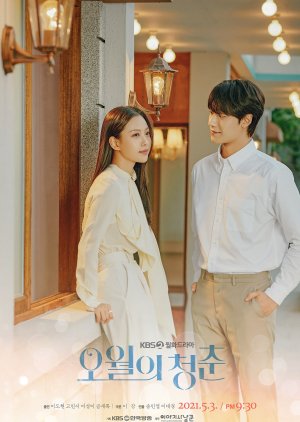









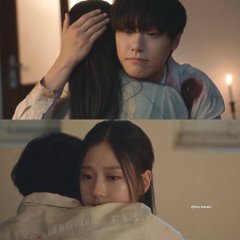
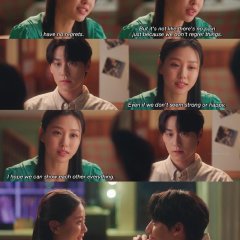
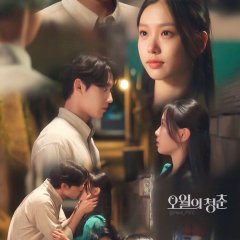

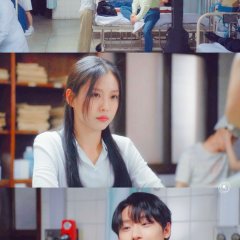

 1
1
